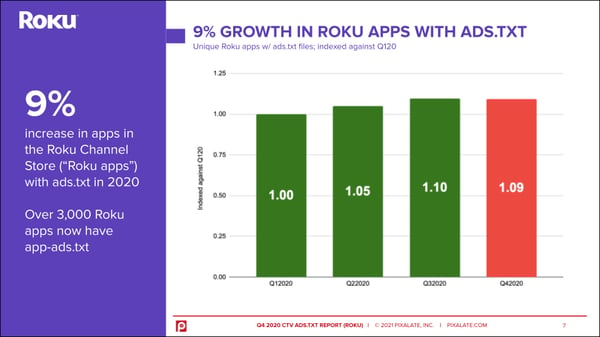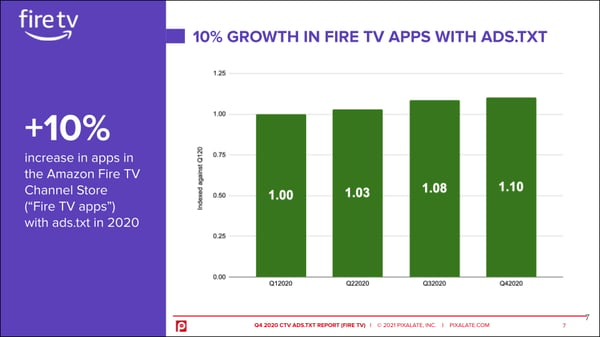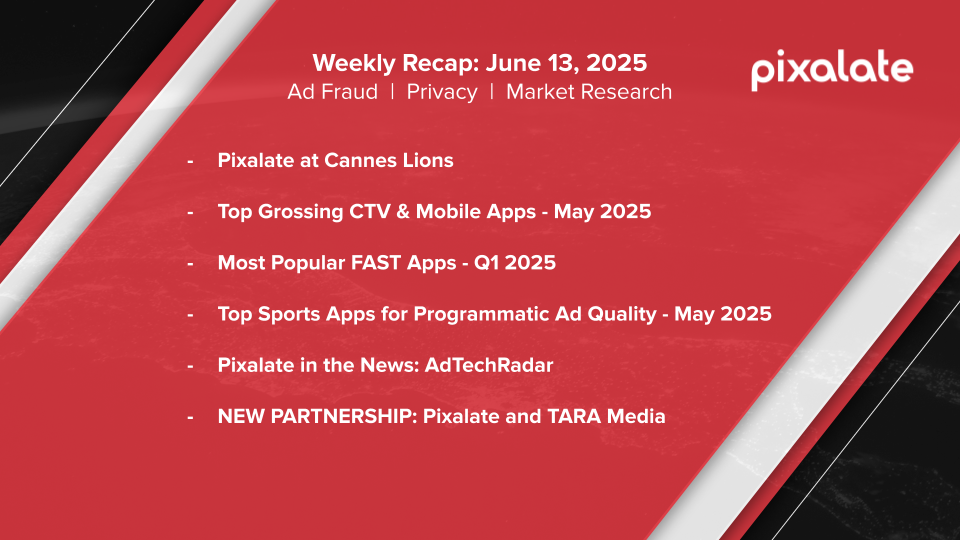This week's review of ad fraud and quality in the digital advertising space.
1: There was a 9% rise in Roku CTV apps with app-ads.txt in 2020

This Pixalate blog details the growth of app-ads.txt adoption among Roku apps in 2020. There was a 9% increase in the number of Roku apps with app-ads.txt in 2020 (Q1 to Q4), and over 3,000 Roku apps now have app-ads.txt. Learn more in Pixalate's Connected TV App-Ads.txt Reports for Roku Apps.
2: Amazon Fire TV apps with app-ads.txt rose 10% in 2020

This Pixalate blog details the growth of app-ads.txt adoption among Amazon Fire TV apps in 2020. There was a 10% increase in the number of Fire TV apps with app-ads.txt in 2020 (Q1 to Q4), with the biggest jump in adoption coming between Q2 and Q3. Learn more in Pixalate's Connected TV App-Ads.txt Reports for Amazon Fire TV Apps.
3. Measurement a key challenge for CTV growth

In this Beet.tv interview, Merkle's Andy Fisher, head of Merkury Advanced TV, said: "Marketers also are more concerned about ad fraud as more CTV advertising is bought through programmatic auctions, which aren’t always transparent outside of direct deals or private marketplaces (PMPs)."
4. Ad fraud among the 15 top digital ad challenges to watch for in 2021











